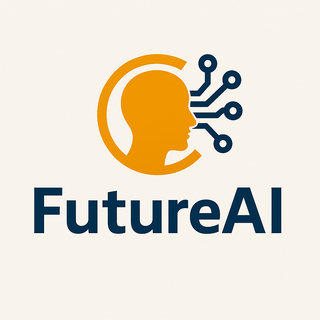🔐 AI in Cybersecurity – Protecting the Digital World
AI is transforming cybersecurity by detecting threats, preventing cyberattacks, and protecting sensitive data. As cyber threats become more advanced, AI-powered security systems help businesses and individuals stay safe online.
🔹 1. What is AI in Cybersecurity?
AI in cybersecurity refers to the use of machine learning and deep learning to:
✅ Detect and prevent cyber threats in real-time.
✅ Analyze large amounts of security data to find patterns.
✅ Identify and block suspicious activities before an attack happens.
✅ Improve authentication using biometric AI (face & fingerprint recognition).
📌 Example: AI helps banks detect fraud by identifying unusual transactions!
🔹 2. How AI is Used in Cybersecurity?
🔵 Threat Detection – AI analyzes millions of data points to detect malware, viruses, and hacking attempts.
🔵 Fraud Prevention – AI detects suspicious transactions in banking and e-commerce.
🔵 Automated Response – AI reacts instantly to cyberattacks, minimizing damage.
🔵 Biometric Security – AI-powered facial recognition and fingerprint scanning for authentication.
🔵 Phishing Detection – AI identifies fake emails, websites, and scams.
📌 Example: AI in Google Gmail detects 99.9% of phishing emails before they reach users!
🔹 3. AI-Powered Cybersecurity Tools
🚀 IBM Watson for Cybersecurity – AI that detects and prevents cyber threats.
🚀 Darktrace – AI-powered self-learning cybersecurity system.
🚀 Cylance – AI-based antivirus software that stops malware before it spreads.
🚀 Google reCAPTCHA – AI protects websites from bots and fake logins.
📌 Example: AI helps prevent identity theft by recognizing unusual login behavior!
🔹 4. Benefits of AI in Cybersecurity
✔️ Faster Threat Detection – AI detects attacks instantly, unlike traditional methods.
✔️ Reduced Human Error – AI automates security tasks to avoid mistakes.
✔️ Continuous Learning – AI adapts to new cyber threats in real time.
✔️ Advanced Fraud Detection – AI protects banking and e-commerce from financial fraud.
✔️ Better Authentication – AI-powered facial and voice recognition improve security.
📌 Example: AI-based fraud detection in credit card transactions prevents billions in losses!
🔹 5. Challenges of AI in Cybersecurity
❌ AI Can Be Hacked – Cybercriminals use AI to create smarter attacks.
❌ High Cost – Advanced AI security systems are expensive.
❌ False Positives – AI may block legitimate users or transactions.
❌ Data Privacy Risks – AI collects and processes large amounts of personal data.
📌 Example: Hackers have started using AI-generated phishing emails that are harder to detect!
🔹 6. Future of AI in Cybersecurity
🚀 AI-driven cybersecurity assistants to help individuals stay safe online.
🚀 Self-healing networks that fix security issues automatically.
🚀 AI-powered identity verification for safer online transactions.
🚀 Real-time AI cyber defense systems for governments and businesses.
📌 **The future of cybersecurity will depend on AI to stay ahead of hackers and cybercriminals!
🎯 Conclusion
✔️ AI is revolutionizing cybersecurity by detecting threats faster and protecting sensitive data.
✔️ AI-powered security systems help prevent hacking, fraud, phishing, and malware attacks.
✔️ Challenges include AI-powered cyberattacks, false positives, and data privacy concerns.
✔️ The future of cybersecurity will include self-learning AI systems and advanced identity verification.



Post a Comment
0Comments